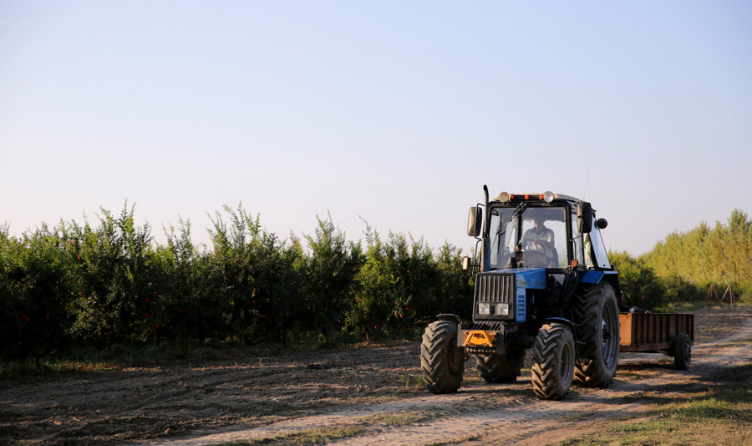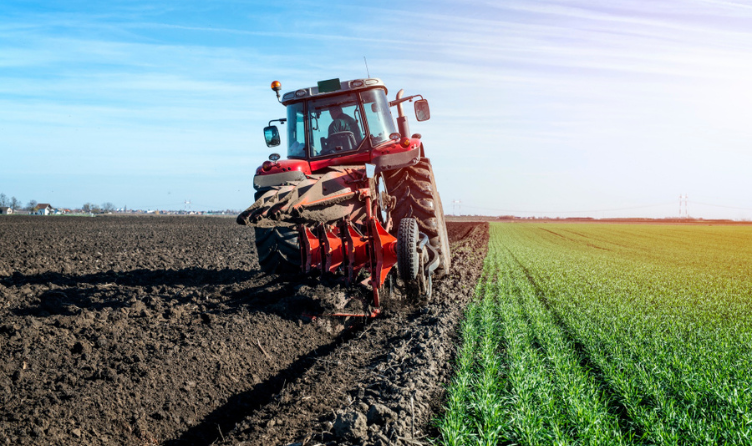Enhancing Farm Operations with Tractor Finance
14 August 2024
5 Mins Read

toc impalement
For most farms, tractors are an essential part of daily life. Financing a tractor emerges from the need to utilize specialized agricultural machinery like this, even when access to capital is low.
Quality agricultural machinery is crucial for running your farm or agricultural business smoothly.
However, tractors and other farming equipment are expensive, and purchasing them outright might exceed your budget. Tractor and agricultural finance are specialist business finance methods that allow you to acquire the necessary equipment without finding the capital to fund an outright purchase.
So, keep on reading this blog till the end to learn more…
What is Tractor Finance?

Tractor finance is a branch of asset finance, an established range of options for purchasing or leasing vehicles and equipment. It works similarly to car leasing options, offering flexibility and affordability.
Two key types of asset finance commonly used in the agricultural industry are finance leasing and operational leasing, enabling you to quickly obtain a new tractor or other farming equipment.
However, they differ in terms of cost, operation, and what happens to the equipment at the end of the lease term.
Financing a tractor enables farmers to allocate resources more efficiently by:
- Freeing Up Capital: Financing tractors allows farmers to conserve cash for other essential expenses, such as seeds, fertilizers, and labor.
- Prioritizing Tasks: With reliable tractors, farmers can focus on high-priority tasks, like planting and harvesting, during critical periods.
- Optimizing Equipment Usage: Financing allows farmers to acquire specialized tractors for specific tasks, reducing downtime and increasing productivity.
- Streamlining Operations: Tractor finance enables farmers to upgrade to newer, more efficient models, reducing fuel consumption and maintenance costs.
- Improving Planning: Financing agreements often include predictable payment schedules, helping farmers budget and plan for future expenses.
By allocating resources more efficiently, farmers can:
- Increase crop yields and quality
- Reduce waste and minimize losses
- Enhance overall farm productivity
- Make informed decisions about resource allocation
- Improve their bottom line
Effective resource allocation also enables farmers to prioritize essential tasks, such as:
- Planting and harvesting during optimal weather conditions
- Maintaining soil health and fertility
- Managing pests and diseases
- Investing in new technologies and techniques
By improving resource allocation and prioritizing essential tasks, tractor finance helps farmers optimize their farm management, increasing productivity, efficiency, and profitability.
Finance Lease vs. Operating Lease for Tractors

The core difference between a finance and an operating lease lies in maintenance responsibility and ownership possibilities:
Finance Lease
With a finance lease, the responsibility for maintaining the tractor falls on you. This type of lease is akin to buying the tractor, with eventual ownership being a possibility.
At the end of the lease term, you may have the option to purchase the equipment for a nominal fee. This option provides long-term benefits, including building equity in the machinery.
Operating Lease
In contrast, an operating lease places the maintenance responsibility on the leasing company, which retains ownership of the tractor throughout the lease term.
This type of lease is more like renting the tractor, allowing you to use the equipment without worrying about its long-term care.
You return the equipment to the leasing company at the end of the lease term.
Benefits to Cash Flow
Choosing tractor finance, whether through a finance or operating lease, offers significant benefits to cash flow:
- Preservation of Capital: Financing a tractor allows you to preserve your working capital, which can be used for other essential farm operations or unexpected expenses. Instead of making a large upfront payment, you can spread the cost over a more manageable period.
- Budgeting and Planning: Fixed monthly payments make budgeting and planning your finances more manageable. Knowing your exact payment schedule helps forecast and manage cash flow more effectively.
- Access to Modern Equipment: Leasing options enable you to access the latest and most efficient equipment without a substantial financial burden. This ensures your farm operates with modern technology, enhancing productivity and reducing downtime.
- Tax Advantages: Both finance and operating leases may offer tax benefits, such as deducting lease payments as a business expense, thus reducing your taxable income.
Tractor Finance and Seasonal Fluctuations
Tractor finance helps farmers navigate seasonal fluctuations in demand by providing access to necessary equipment during peak periods. Here’s how:
During peak seasons, farmers need reliable tractors to meet increased demand. However, purchasing tractors outright can be costly. Tractor finance allows farmers to acquire tractors without a significant upfront investment. This means they can:
- Increase production capacity during peak seasons.
- Meet growing demand without straining finances.
- Focus on farming, not financing.
Financing also helps farmers manage cash flow during slower seasons. By spreading payments over time, farmers can:
- Reduce financial strain during off-peak periods
- Allocate resources to other essential farm operations
- Maintain a stable cash flow throughout the year
Additionally, tractor finance often includes flexible repayment terms, allowing farmers to adjust payments according to seasonal income. This means they can:
- Make larger payments during peak seasons
- Reduce payments during slower seasons
- Align payments with their farm’s cash flow
By providing access to necessary equipment and flexible repayment terms, tractor finance helps farmers navigate seasonal fluctuations in demand.
This ensures they’re prepared for peak periods, meet growing demand, and maintain a stable cash flow throughout the year.
Bottom Line
In conclusion, financing a tractor is a powerful tool for farmers to enhance their operations. By providing access to necessary equipment, managing cash flow, and allocating resources efficiently, tractor finance helps farmers increase productivity, reduce costs, and improve overall management.
With flexible repayment terms and predictable payment schedules, farmers can focus on what they do best – farming. Tractor finance enables farmers to prioritize essential tasks, use new technologies, and expand their operations.
Farmers can overcome seasonal fluctuations, reduce risks, and achieve long-term success by leveraging tractor finance.
Whether you’re a small-scale or large-scale farmer, tractor finance can help you achieve your goals and take your farm to the next level!
I hope that this blog has been of help to you. In case of other questions related to the same, please let me know. Comment below in the box, and I will answer them all for you!
Read Also:


















Comments Are Closed For This Article